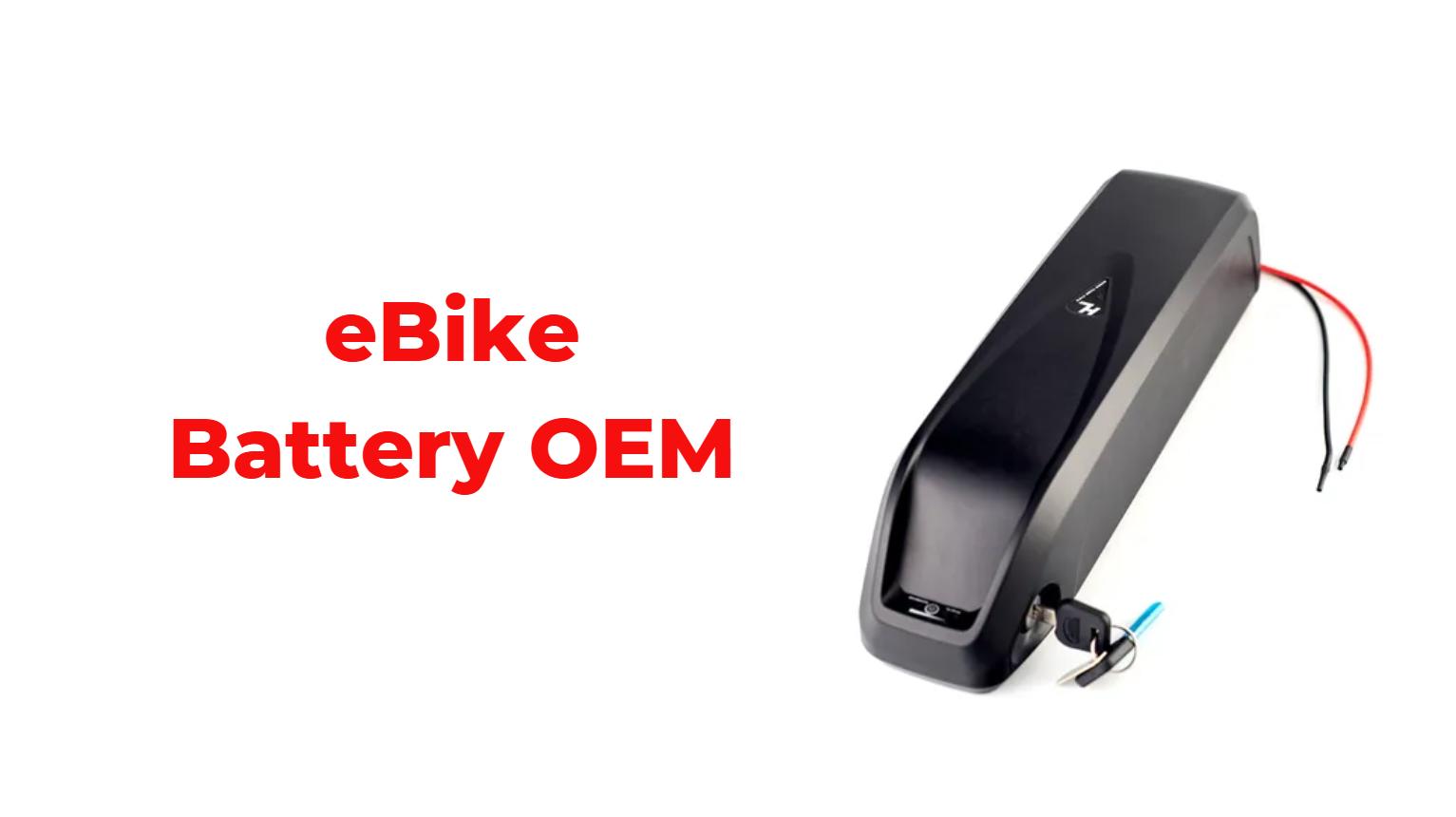
What Should You Know About Lithium-Ion E-Bike Battery Comparisons?
Lithium-ion e-bike battery comparisons require understanding chemistry types, energy density, safety, cycle life, weight, voltage, and capacity. Li-ion, LiPo, and LiFePO₄ each offer unique trade-offs in range, durability, and cost. Choosing the right battery depends on your riding style, terrain, budget, and desired performance. Lithium-Battery-Manufacturer provides advanced, reliable solutions for every e-bike need.
How do different lithium-ion chemistries compare for e-bike batteries?
Lithium-ion e-bike batteries come in several chemistries: standard Li-ion (often cobalt-based), lithium polymer (LiPo), and lithium iron phosphate (LiFePO₄). Standard Li-ion offers high energy density and lightweight design, making it ideal for most e-bikes. LiPo batteries are even lighter and more flexible in shape but may have a shorter lifespan. LiFePO₄ batteries excel in safety, stability, and cycle life, though they are heavier and bulkier. Lithium-Battery-Manufacturer produces all three chemistries to meet diverse e-bike requirements.
Chart: E-Bike Battery Chemistry Comparison
| Chemistry | Energy Density | Weight | Cycle Life | Safety/ Stability | Cost |
|---|---|---|---|---|---|
| Li-ion | High | Light | 500–1,000 | Moderate | Moderate |
| LiPo | Moderate | Very Light | 300–800 | Moderate | Higher |
| LiFePO₄ | Lower | Heavier | 1,000–3,000 | High | Higher |
What is the impact of battery voltage and capacity on e-bike performance?
Battery voltage (V) determines the power output and top speed of your e-bike, while capacity (Ah or Wh) dictates how far you can travel on a single charge. Higher voltage batteries (48V, 52V) provide more acceleration and hill-climbing ability, whereas higher capacity (measured in watt-hours, Wh) ensures longer range. Lithium-Battery-Manufacturer recommends matching voltage and capacity to your riding habits and terrain.
How does energy density affect weight, size, and range?
Energy density measures how much energy a battery stores per unit of weight or volume. Higher energy density means lighter, more compact batteries with longer range. Standard Li-ion batteries are favored for their high energy density, while LiFePO₄ batteries, though heavier, offer unmatched safety and longevity. Consider your e-bike’s weight limits and portability needs when comparing options.
Which lithium battery is safest for e-bikes?
LiFePO₄ batteries stand out for their exceptional thermal and chemical stability, making them highly resistant to overheating and thermal runaway. They tolerate overcharging and extreme temperatures better than standard Li-ion or LiPo batteries. For riders prioritizing safety, especially in cargo or commuter applications, Lithium-Battery-Manufacturer recommends LiFePO₄ solutions.
How does cycle life and durability differ among e-bike battery types?
Standard Li-ion batteries typically last 500–1,000 cycles, while LiFePO₄ batteries can exceed 2,000–3,000 cycles with proper care. LiPo batteries generally fall in between but may degrade faster if mishandled. A longer cycle life means fewer replacements and lower total ownership cost, making LiFePO₄ the top choice for heavy or daily riders.
What are the pros and cons of lithium-ion, LiPo, and LiFePO₄ e-bike batteries?
Li-ion:
Pros: High energy density, lightweight, widely available, good range.
Cons: Moderate safety, degrades in extreme temperatures, moderate cycle life.
LiPo:
Pros: Ultra-lightweight, flexible form factor, fast charging.
Cons: Shorter lifespan, more sensitive to damage, higher cost.
LiFePO₄:
Pros: Superior safety, long cycle life, stable voltage under load, wide temperature range.
Cons: Heavier, bulkier, higher upfront cost.
How do you choose the best lithium-ion battery for your e-bike?
Consider your typical riding distance, terrain, desired speed, and whether you need a lightweight or heavy-duty solution. For long-range, lightweight needs, standard Li-ion or LiPo may be best. For maximum safety and longevity, especially for cargo or commuter bikes, LiFePO₄ is ideal. Lithium-Battery-Manufacturer offers tailored recommendations and OEM support for every use case.
Chart: Choosing the Right E-Bike Battery
| Rider Type | Best Chemistry | Why |
|---|---|---|
| Recreational | Li-ion | Lightweight, good range |
| Commuter | LiFePO₄ | Safety, long life, stable output |
| Cargo/Utility | LiFePO₄ | Handles heavy loads, durable |
| Performance | LiPo/Li-ion | Lightest, best acceleration |
What maintenance and care tips extend lithium e-bike battery life?
-
Store batteries at moderate temperatures, avoiding extreme heat or cold.
-
Charge regularly, but avoid deep discharges or overcharging.
-
Use chargers recommended by the manufacturer.
-
For LiPo batteries, handle with care to prevent punctures or swelling.
-
Lithium-Battery-Manufacturer advises following all safety and care guidelines for maximum lifespan.
How does cost factor into lithium-ion e-bike battery comparisons?
Li-ion batteries offer the best balance of cost, performance, and availability for most riders. LiPo and LiFePO₄ batteries are more expensive upfront but may provide better performance or longevity in specific scenarios. Always compare total cost of ownership, factoring in cycle life and replacement frequency.
Lithium Battery Expert Views
“Lithium-ion e-bike battery comparisons come down to chemistry, capacity, safety, and application. At Lithium-Battery-Manufacturer, we engineer Li-ion, LiPo, and LiFePO₄ batteries to fit every rider’s needs, from lightweight performance to robust, long-lasting power. Informed choices ensure the best ride and the safest experience.”
-
Lithium-Battery-Manufacturer Battery Expert
Conclusion
Comparing lithium-ion e-bike batteries means weighing chemistry, energy density, safety, cycle life, voltage, and cost. Li-ion and LiPo batteries offer lightweight, high-performance options, while LiFePO₄ excels in safety and durability. Lithium-Battery-Manufacturer provides advanced, reliable batteries for every e-bike application, ensuring you get the best match for your riding style and needs.
FAQs
Which lithium battery lasts longest for e-bikes?
LiFePO₄ batteries typically offer the longest cycle life, often exceeding 2,000–3,000 cycles.
Is a higher voltage battery always better?
Higher voltage means more power and speed, but should match your e-bike’s motor and controller specifications.
Are LiFePO₄ batteries safer than standard Li-ion?
Yes, they offer superior thermal stability and resistance to overcharging.
How do I maximize my e-bike battery’s lifespan?
Charge regularly, avoid full discharges, store at moderate temperatures, and follow manufacturer care instructions.
Why choose Lithium-Battery-Manufacturer for e-bike batteries?
They deliver high-quality, certified lithium solutions tailored to every e-bike need, backed by industry expertise and support.


